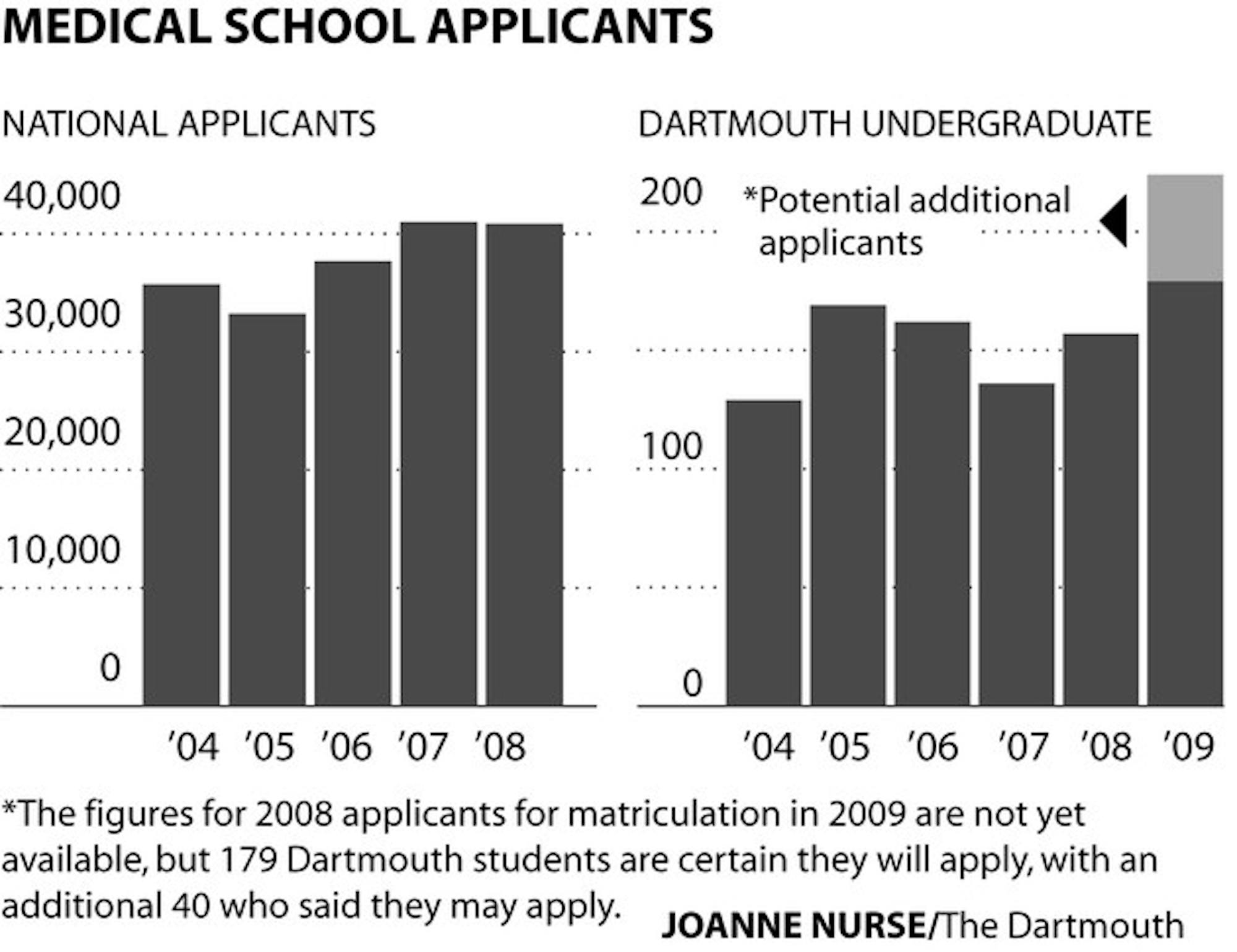Based on past trends, the current national economic crisis may cause more students to consider attending medical school and pursue jobs in medicine, as positions in business become more scarce, Witters said.
Among Dartmouth seniors this year, 218 students are currently considering applications to medical school, with 179 of those students sure of their plans to apply to medical school, according to Kimberly Sauerwein, the pre-health adviser at Career Services. This is an increase from last year's applicant pool -- only 96 of 157 students had definitely decided to apply to medical school at this time last year, Sauerwein said.
"This year we are seeing much higher numbers of undergraduates planning on attending medical school," she said, though she added that she does not expect the total number of applicants to increase beyond around 200.
Sauerwein and Witters both said a record number of freshmen reported interest in the pre-medical track this year, with more than one third of students in the Class of 2012 considering a future career in medicine. Currently, over 1,100 Dartmouth undergraduates are members of the Nathan Smith Society, the pre-medical society at the College, the largest membership in the group's history, Sauerwein said.
Nationally, the AAMC found a nearly two percent increase in medical school enrollment for 2008, compared to the 2007 enrollment figures, according to the report, released on Oct. 21. Darrell Kirch, president and CEO of the AAMC, said in a press release that interest in medical occupations has not decreased, despite general economic uncertainty. The AAMC has advocated for medical schools to raise enrollment by 30 percent from 2002 levels before 2015, according to past press releases.
Sauerwein said AAMC's efforts to increase medical school enrollment are motivated by predicted shortages in primary care physicians nationally, especially in inner-city and rural areas.
The AAMC release also expressed concerns about the future ability of residency programs to accommodate the expanding number of physicians graduating from medical school.
Standards for acceptance into medical schools also rose for last year's applicants, with the mean grade point average of undergraduate applicants rising to 3.50 and the average Medical College Admission Test score rising to 28.1 out of a maximum 45 points, according to the AAMC release.
Approximately 80 percent of Dartmouth students planning on applying to medical school will choose to defer a year or two after graduation before attending medical school, Sauerwein said.
"For most applicants, a gap year will provide more flexibility in their college experience, so that students do not have to squeeze all of the prerequisites for medical school into three years so that they can apply by senior year," she said.
While students are sometimes encouraged to leave a year between college graduation and the start of medical school, other issues can influence students' approaches to application.
"Financially, medical school is a big investment, but I didn't see myself earning enough money in my time off to justify waiting a year," William Winkelman '09, who is currently applying to medical school, said.
Ian Dumont '09, a student who chose to take a gap year before applying, said he will use the year to work in the business side of medicine, rather than limiting his experience to lab work.
"For me, there are a bunch of different reasons that I am not planning on going to medical school right away," Dumont said. "You just feel like you there is too much pressure, or that you just need time before heading back to school again."




